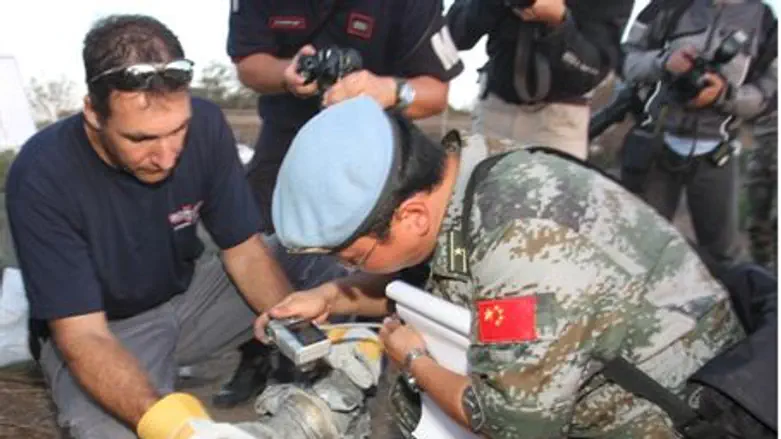
A Beirut newspaper contends that the 2006 Second Lebanon War never ended, despite the United Nations-brokered ceasefire that halted the 34-day conflict.
“The July War is Not Over,” proclaimed the headline this past Monday in the Arabic-language newspaper Al-Akhbar. The article was published four years to the day since the Hizbullah terrorist organization launched the war through a multi-pronged attack on Israel's northern border that included the abduction and murder of two IDF reservists, Ehud Goldwasser and Eldad Regev.
While the IDF searched for the soldiers and bombed strategic terrorist targets in Lebanon, Hizbullah rained thousands of Katyusha rockets upon northern Israel. Some 1,200 people were killed in Lebanon, as well as 160 Israelis, many of whom were soldiers.
U.N. Security Council Resolution 1701 officially ended the war with Hizbullah, which continued to refuse returning the two kidnapped soldiers. The ceasefire agreement included a clause that the U.N. Interim Force in Lebanon (UNIFIL) would enforce its assurance that Hizbullah would not be allowed to re-arm. But from the outset, UNIFIL commanders made it clear that the goal was not realistic, and the task an impossible exercise in futility.
It was more than a year before Hizbullah's murder of Regev and Goldwasser was revealed. For months, Israel negotiated patiently for their release, never knowing for certain that both were long dead. Only after Israel had freed child murderer Samir Kuntar and four other live terrorists, plus the bodies of 199 dead Hizbullah soldiers, the two black coffins containing the remains of the two reservists appeared at the Rosh HaNikra border crossing.
Monday's article in the Hizbullah terrorist mouthpiece now claims that “Four years after the end of the war... both parties look ready to leap back into action and are prepared both in terms of capacities and incentives.”
Hizbullah has certainly replenished its weapons arsenal to levels far greater than that with which it started – currently possessing more than 40,000 missiles, by most intelligence estimates. Last month satellite photos documented that Syria facilitated the transfer of long-range Scud missiles to the terrorist group as well, further enhancing Hizbullah's ability to carry out attacks reach deep inside Jewish State.
This month the IDF published aerial photographs showing evidence of the terrorist group's activity stockpiling missiles and other weapons in towns and villages near Israel's northern border.
And after decades of ties with Lebanese villagers, suddenly UNIFIL personnel have become the target of extremists who have begun to incite protests and attacks against the peacekeeping troops.
Hizbullah, which has become an accepted presence in the nation's parliament – and even its inner ministerial cabinet – is slowly taking over the country's political landscape.
In Israel, the Home Front Command has begun distributing gas masks to its citizens across the country through a national campaign promoting the use of the postal system as well as nationwide distribution points. And in the most recent round of the annual draft, annual statistics showed that combat units were the most popular among young high school graduates just beginning their mandatory service.
